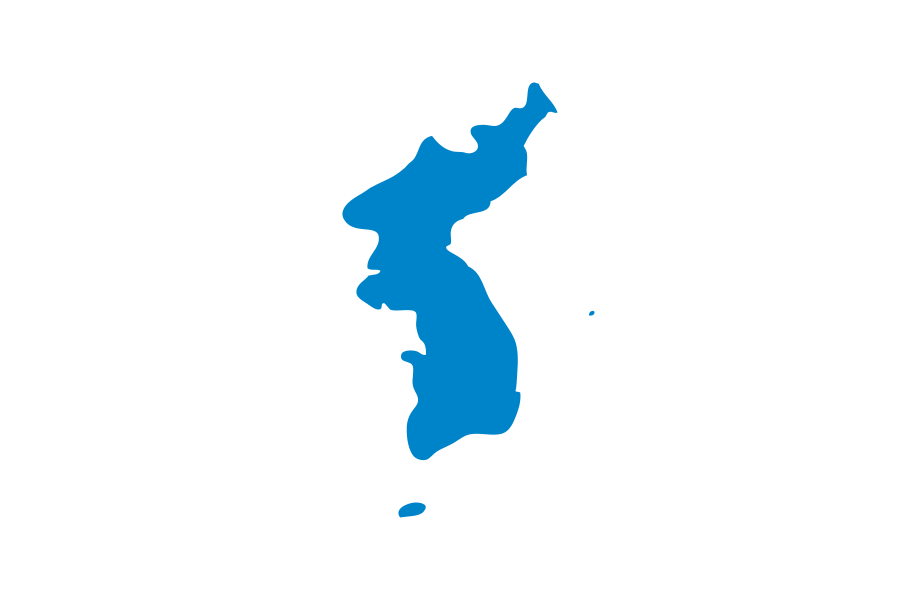Perspectives on Koreas uniting for the Olympics
korea unification
February 8, 2018
The Olympics are often seen as a symbol of global unification, where vastly different countries, cultures and ideologies come together as one to compete in a variety of disciplines.
This Winter Olympics in Pyeongchang, South Korea, however, we will see a rare symbol of unity between two historically divided nations. In 2018, North Korea and South Korea will march together under one flag, symbolizing a united Korea.
Faculty perspective
According to Jonathan Hassid, assistant professor in political science, there are many potential motivations as to why North Korea, a historically isolated nation, would want to unite with South Korea and present themselves on such a national scale. Hassid said that despite historic tensions between North and South Korea he views the union as a potential “gesture of reconciliation.”
“I think the Trump administration’s policies have something to do with it. I think that there’s a lot of war rhetoric [between] President Trump and Kim Jong Un,” Hassid said. “I think that the relatively new South Korean President, President Moon, is trying to do this to dial back some of the tensions.”
Hassid also felt that the Olympics themselves have played a large role in the timing of this symbol of unity between the two nations.
“This is a time where South Korea, for a while, is on the national stage,” Hassid said. “It’s symbolic.”
Hassid also mentioned recent South Korean dissent and disapproval of the government’s push for a unified Korea.
Student perspective
President of the Korean Student Association Jae Hyun Bang, senior in marketing, said that some protesting South Koreans resisted the unification because of past invasions and violence North Korea has inflicted on South Korea.
“In the past, North Korea invaded South Korea. I think they have personal bad feelings about that,” said Bang.
Bang also spoke about protests taking place due to South Korean athletes on the women’s hockey team losing representation. He felt the announcement was mishandled and South Koreans may have felt unhappy due to the sudden loss of South Korean athletic representation on the united women’s hockey team put together by the government.
“I think there were some mistakes in the negotiations,” Bang said. “In my opinion there was a mistake made by the government. They didn’t tell the athletes about that, they just announced it.”
Bang said he understood the message of unity; he felt this team showed unity between the two nations. Bang also spoke about the potential positive significance of this symbolic unity.
“They might feel that this is a beginning step to be one nation,” said Bang.
Bang however, felt that North Korea has been consistently dishonest.
“The actions by North Korea have been really bad. In official announcements they pretend to be friendly to South Korea, but it turns out that they try to do nuclear experiments … or take South Korean soldiers. Some people feel it might be the same thing,” Bang said. “Officially they try to be friendly, but behind their back they might have a really bad plan.”
Bang went on further to give his personal thoughts on the unification. Bang struggled to find the significance in this symbolic unity between the two nations that have been divided since 1945.
“It looks good to be one nation even though it’s just for one event,” Bang said. “I actually kind of have no feelings about that because it’s been too long, the separation between the two of us, so it feels like it’s okay to just be seperate. The Olympics is a really big event [but] … this is just a temporary thing.”
Bang also feels that North Korea may only be motivated to make this gesture of unification due to their negative public image and a reportedly declining economy.
“In North Korea there is a lack of labor resources and a money shortage, right now they are in an economic depression,” Bang said. “I think that’s why they are trying to be more peaceful … that’s why this is the time that they try to enter the Olympics with South Korea.”
Bang further elaborated that he personally feels that North Korea’s global infamy in recent times with nuclear testing and other negative press may be a reason they’ve entered into the Olympics.
“I think they want to get rid of their image … I think that the Olympics is a chance to be friendly to other nations so they can get economic help from other countries,” Bang said.
While a unified Korea at the 2018 Olympic Games offers major symbolic and political significance for the two nations, many still feel that the gesture is purely symbolic in nature and offers no concrete meaning.
















